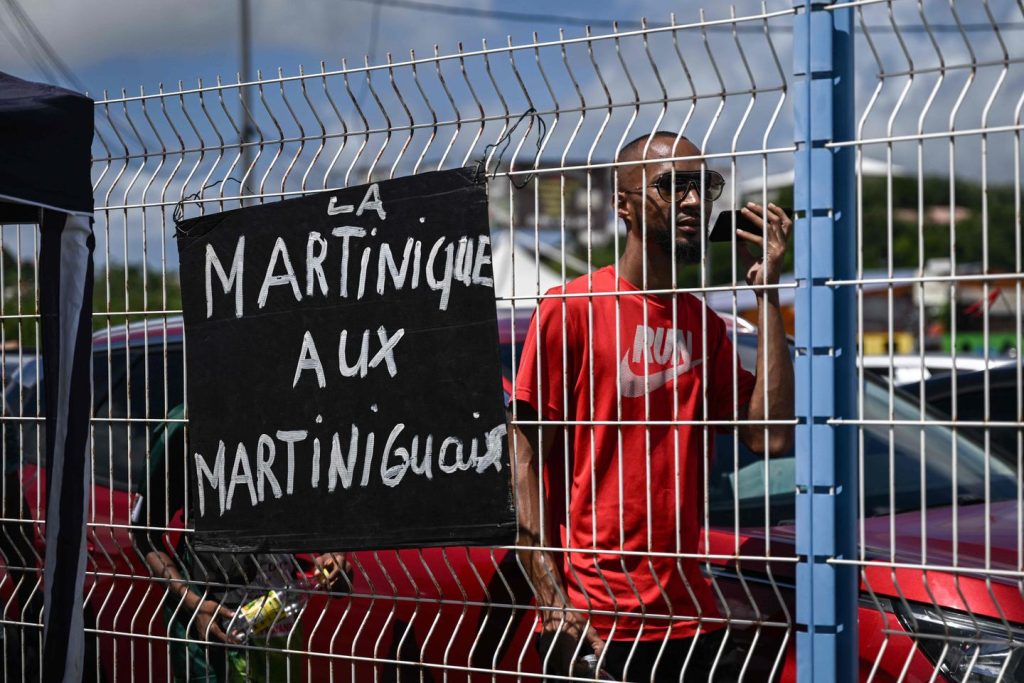On the night of Sunday, October 20th, to Monday, October 21st, new urban violence erupted in Martinique, with the prefecture reporting “a dozen blockades” being set up, a gas station being “looted,” and an injury among law enforcement officers, ahead of a day of demonstrations against the high cost of living. Around 100 masked individuals claiming to be part of a “citizen movement” attempted to “block Martinique” starting at 3 a.m. local time. They were joined by another 200 masked individuals at 6 a.m. in various locations, leading to the setting up of a “dozen blockades.” These blockades were quickly dispersed by law enforcement, who faced projectiles and reported an injury. A gas station was looted and one individual was arrested. Two remaining blockades were set to be cleared later in the day by security forces.
This surge in violence comes ahead of a new day of blockades on Monday across the territory of Martinique, home to around 350,000 inhabitants, organized by the Rassemblement pour la protection des peuples et des ressources afro-caribéens (RPPRAC). Last Wednesday, this citizen collective, key in the movement against high prices, refused to sign an agreement to lower prices of around 6,000 food products by an average of 20%. The agreement was signed by the prefect, distributors, and the territorial collectivity of Martinique. The RPPRAC deemed the number of affected products insufficient in a territory where food prices are 40% higher than in mainland France. The collective called for the movement to continue, mobilizing around 2,000 people on Saturday. Following an initial partial curfew from September 18th to 26th to contain riots, the prefect imposed new nighttime travel restrictions across the territory starting on October 10th, in effect until Monday morning.
The unrest in Martinique has been ongoing since the beginning of September, with sporadic violence accompanying the protests against high living costs. The RPPRAC has been at the forefront of the movement, advocating for a significant reduction in food prices to alleviate the financial strain on the population. While some progress has been made with agreements reached between authorities and stakeholders to lower prices, the collective and its supporters continue to demand more significant changes to address the economic inequality on the island. The protests have sparked clashes with law enforcement, leading to injuries and property damage. Despite attempts to quell the unrest through curfews and travel restrictions, the tensions persist, with both sides preparing for further demonstrations and potential confrontations in the coming days.
The situation in Martinique reflects broader issues of economic disparity and social unrest in French overseas territories, where high living costs and limited economic opportunities have fueled discontent among the population. The ongoing protests and clashes signify a deep-seated frustration with the status quo and the perceived inequities in the distribution of resources and opportunities. The government’s response to the unrest, including curfews and security measures, has so far been met with resistance and defiance from those demanding more substantial changes to address the root causes of the discontent. As tensions continue to simmer, the authorities are bracing for further unrest and potential escalations in the coming days, while the protesters remain steadfast in their demands for economic justice and equality.


